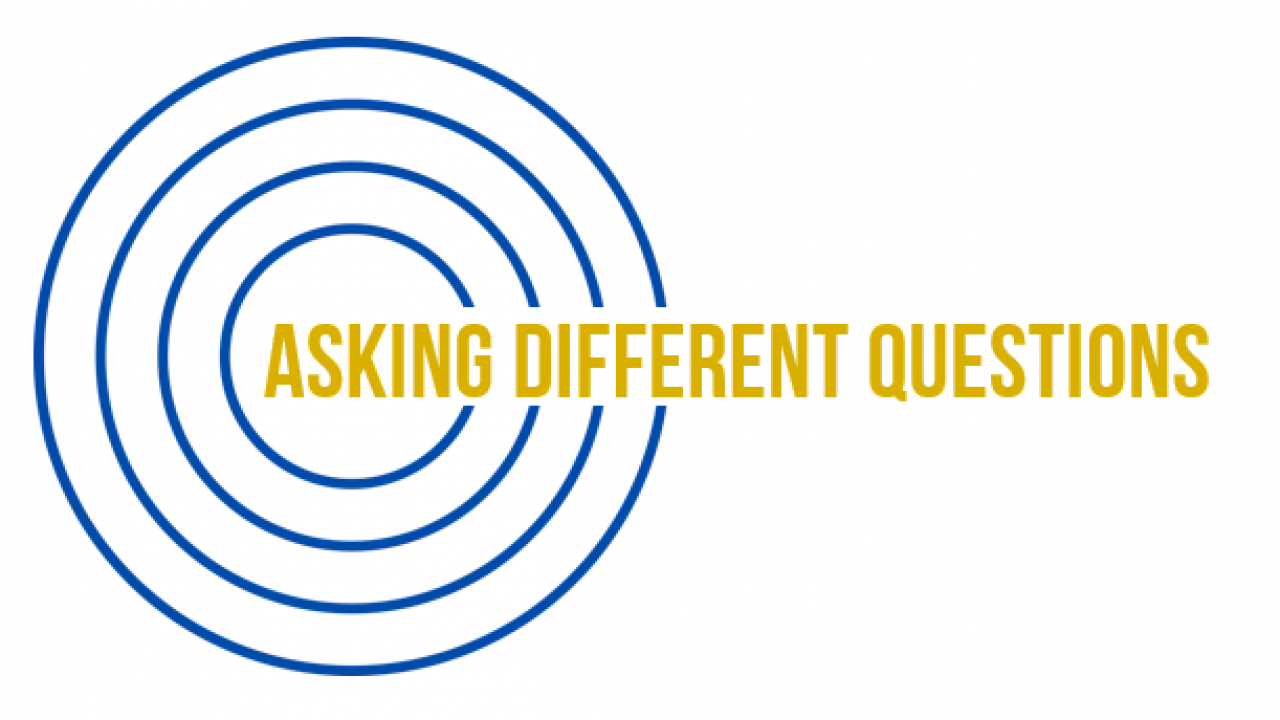
Asking Different Questions Research Training Playlist
The Feminist Research Institute is proud to present the full collection of Asking Different Questions research training videos to help support researchers interested in better integrating social justice into their scholarship.
In the playlist on our YouTube channel, viewers can watch each of the 20-30 minute workshops that tackle a variety of important topics within the research community. The most popular video in the series, “Moving from Asking Different Questions to Action-Oriented Change” has over 2,600 views.
How does culture influence science and what changes are necessary to bring about more just scientific research?
This session uses contemporary controversies to examine how histories of domination continue to impact ongoing scientific practice. Learn how to compare competing theories of knowledge, describe the relationship between science and culture in their field, and analyze how power shapes scientific debate. The lesson focuses on the proposed building of the Thirty Meter Telescope at Maunakea.
Identity and Belonging in Science
How does our identity and position in the world affect our work as researchers? To what extent do we “fit in” to the culture of our lab and field? How is this fit influenced by histories of the field and the shaping of disciplines? How does this affect the research questions a field prioritizes? Learn how historically salient identities such as race, gender, sexuality, class, nationality, and disability affect cultural norms of science. Explore how starting from different social assumptions can produce knowledge aimed at increasing social justice.
Identifying Bias in Scientific Research and Training
How have the histories of exclusion in science become embedded into the field, including the metaphors, languages, and scientific practices? How does a field’s choice of language and metaphor affect the scientific process? The language and metaphors used in a field, or even the instruments developed, can carry with it unintended biases and assumptions. These choices can impact public uptake of findings, influence applications of research, and foreclose potentially rich lines of inquiry. This session examines the language and metaphorical practices used to identify key signifiers that may be limiting the possibilities of scientific inquiry, and how shifts to contrasting language and concepts lead to new scientific discoveries and produced more equity.
Hierarchy and Accountability in Science
How do hierarchies of science and systems of power influence science? How do the ways we are beholden to funding and administrative structures impact the knowledge we produce? Participants will discuss how hierarchies influence the types of research questions that we can ask, the type of work we can do, how conduct research, and the methods we use. How can more acute attention to the complexity of hierarchies help us to do better, more intentional research? This session also explores alternatives systems of accountability that shift research commitments to be in solidarity with those most vulnerable.
Studying Race, Sex, and Gender
How can we study race, sex, and gender in ways that are more precise to produce better research results? Race, gender, and even sex are sociocultural constructs. Yet they have real impacts on our daily lives and well-being. How can researchers best take these important identity markers into account without succumbing to a false biological determinism? This session identifies common pitfalls that undermine research findings, and more productive pathways.
Making More Accurate Knowledge
How can more nuanced models of objectivity allow us to represent more accurately our research findings? Scientific findings are often messier and situated in specific historical, institutional, and cultural conditions that go unacknowledged in published findings. The session explores how models of objectivity have changed over time within the scientific community, and potential new, more accurate models that account for how science and culture interact.
Addressing Legacies of Colonialism in Science
How do the histories of colonialism continue to inflect scientific research? Legacies of colonialism impact what is considered a valid research question or approach today. This session examines how histories of colonialism and empire influenced the emergence of disengagement as a value of scientific practice. Learn how traditional notions of objectivity support an idea of detachment from the object of study, a divide between observer and observed. Consider instead an approach based in relationality that more accurately reflects the lived reality. The case study reading centers approaches in indigenous science.
Moving from Asking Different Questions to Action-Oriented Change
How do we apply the many concepts presented in this training series to produce tangible change? What is the process of making a research plan based on some of these concepts that is right for you? This final episode of the series prepares a research community to enact action-oriented change by walking through a practical, step-by-step, iterative process for envisioning, planning, and implementing tangible change.
Held virtually in Fall 2020, the series is part of a project funded by National Science Foundation Innovations in Graduate Education grant. Co-PIs of “Asking Different Questions: Interdisciplinary Approaches to Science” are Sarah McCullough and Kalindi Vora.